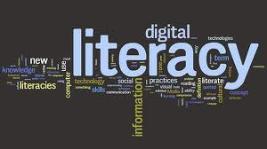
Last month saw the launch of a series of informal mini-workshops to enhance digital literacies among environmental learning students at the Environmental Learning Research Centre (ELRC). With a vast array of digital teaching and learning tools becoming more and more readily available, and opening up new ways of teaching, learning and collaborating, being able to connect with others digitally has become more important to environmental learning.
Successful navigation of the digital world requires the development of an array of digital literacies, including being able to access, filter, find and navigate information sources; being able to participate in multiple ways; being able to create and co-create resources; being able to apply existing technologies in ways that are relevant and context-appropriate; and to be able to interrogate, deconstruct and critically analyse teaching and learning resources in light of environmental ethics, values and teaching and learning pedagogies.
The workshops are facilitated by one of the PHD students based at the centre - Priya Vallabh.
The focus of the workshops is to increase the digital literacies of staff and students related to their particular project foci through the use of specific digital tools and resources, while also strengthening the collaborative digital practices within the environmental learning and research communities of practice.
The workshops are responsive to current research and practice related needs among post graduate students and staff and ELRC in particular, and draw on online technologies meeting the following criteria:
- Are open-source or provide sufficient 'free' subscription packages
- Are relatively easy to use
- Respond to current real needs experienced by students and staff
- Are able to be presented in short workshop sessions (20 minutes - 1hour)
Two workshops have been presented to date:
1 - Mendeley as a tool for research document management and referencing
80% of the full-time students based at the centre now have Mendeley installed on their laptops and have begun to experiment with it.
2 - Etherpad as a collaborative document writing tool.
The workshops are followed up with links to the resources, as well as any start-up instructions that may be needed. In the future, these will be supported with resources hosted on the RU Connect site for the centre.
Priya can be contacted at priya@ecoskills.co.za for more information, or with any suggestions or requests.
